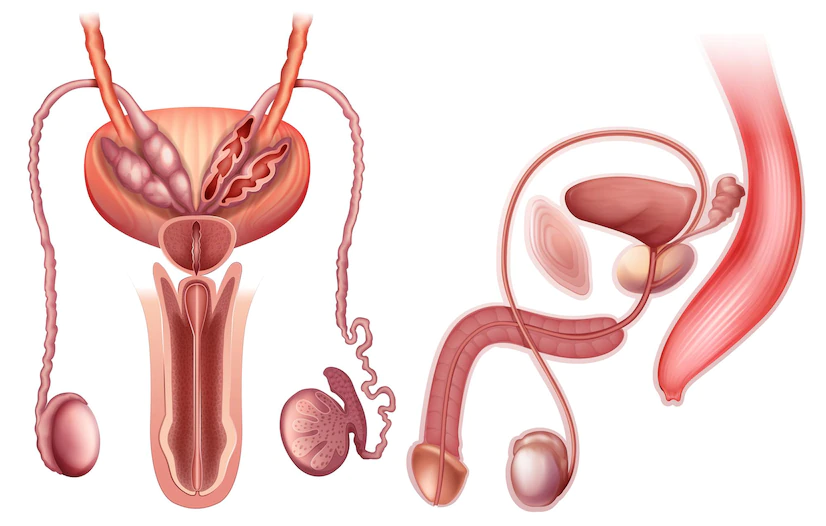
The prostate is the small, walnut-sized gland located at the base of a man’s bladder, just ahead of the rectum.
Though small, the prostate gland carries out the tremendous and essential task of secreting alkaline to produce seminal fluids for the male reproductive system. Due to the significant task it performs, an unhealthy prostate will significantly affect overall health and well-being.
Prostate 911 is a natural supplement that can help improve prostate health. The gland requires regular maintenance and care to prevent it from growing and becoming enlarged enough to develop common prostate illnesses like hyperplasia and cancer.
With that said, here are seven ways to keep your prostate healthy.
7 Lucrative Ways To Keep Your Prostate Healthy

1. Maintain a Healthy Diet
Nothing affects and improves health as efficiently as a good diet. Health specialists recommend frequent consumption of fruits, vegetables, and legumes for a healthy prostate gland as they are rich in antioxidants that aid cell regeneration and prevent inflammation.
Fruits and vegetables like tomatoes, watermelons, and guavas contain one of the most potent natural antioxidants, lycopene. Legumes such as peas, beans, and lentils are rich in iron, magnesium, and fiber, which are versatile enough for incorporation into a daily diet.
It would be best if you also supplemented a plant-based diet by limiting red meats and dairy to accommodate more fatty fish. Dairy is high in calcium, and research indicates that excessive calcium intake negatively affects the prostate.
Red meats like salami, sausage, and bacon are processed meat that is generally unhealthy. Fatty fish, on the other hand, contains omega-3 fats that benefit the prostate and heart. Salmon, trout, and mackerel are all great examples of fatty, healthy fish.
2. Manage Mental Health and Quit Smoking
Prioritizing and caring for your mental health will reduce your risk of contracting prostate-related illnesses.
The mind affects the body as much as the body can affect the mind. Some men deal with anxiety and stress, which promotes the secretion of hormones that aid prostate growth. Practice avoiding or removing yourself from stressful situations, and surround yourself with loved ones.
Men with an unhealthy mental state may turn to cigarettes as a coping mechanism, which carries even more devastating effects. In addition, to affecting respiratory health, medical research shows that smoking cigarette makes you 80% more likely to get prostate cancer.
3. Get Regular Exercise
Exercise is essential to the overall health of your body, not just your prostate, because it improves immune functions, balances hormonal levels, and reduces stress. A sedentary lifestyle will make your body susceptible to illnesses.
Experts suggest that men should undergo thirty minutes of moderate to intense exercise every day for five days a week with guidance from a physician. Strength and resistance training exercises such as squats, leg raises, and sit-ups significantly improve prostate health by reducing fatigue, building muscles, and burning fat.
Studies also indicate that being overweight puts you at risk of prostate illnesses. Achieving and maintaining a healthy weight is significantly beneficial to your prostate health. If overweight, aim to lose one or two pounds a week until you reach your goal. You can discover your healthy weight by checking your body mass index (BMI).
4. Limit Alcohol Intake and Hydrate
Men who limit their alcohol intake have seen improvements in their prostate health. This improvement is because alcohol can cause unhealthy inflammations in your body system, and remember that the goal is to prevent prostate gland enlargement.
Drinking six to eight glasses of water prevents inflammation and promotes smooth bodily functions. Alcohol also dehydrates you, so if you cannot avoid it altogether, be sure to compensate with a higher water intake.
Hydration is vital, but do not overdo it as it depletes electrolytes. Be sure to avoid drinking a lot of water before bed.
5. Drink Coffee and Green Tea
Clinical studies link regular coffee intake to improved prostate health. As recently as 2021, a study showed that consuming three to four cups of coffee reduces the risk of prostate cancer.
Therefore, an occasional consumer may not achieve the same results as a frequent consumer. High caffeine intake may cause side effects like stomach aches, insomnia, and elevated heart rates, so consume according to your physician’s guidelines.
Another proven prostate health catalyst is green tea. Green tea is one of the healthiest drinks in the world, and it contains catechins and polyphenols, both powerful antioxidants that lower the risk of prostate growth. It also has about 20% of the caffeine in coffee.
The recommendation is to consume three to four cups a day to experience its full benefits. Additionally, you can get decaffeinated green tea. However, you must ensure the decaffeinated one uses water and carbon dioxide as solvents because they safeguard the non-depletion of catechins and polyphenols.
6. Restore Hormones
Maintaining testosterone levels contribute to prostate health. Testosterone contains androgen, the primary reproductive hormone in men. Men begin to lose this hormone as they age, and their prostate is at risk.
Good testosterone levels also aid in building muscle and shedding fat. A drop in its levels will likely lead to lower muscle mass and higher weight, making you heavier and susceptible to prostate-induced illnesses.
Lower hormone levels will manifest in symptoms such as low energy levels, memory loss, and erectile dysfunction. Consult your doctor to recommend hormone replacement therapies and treatments.
7. Get Regular Prostate Exams
Drawing from the previous point, you cannot over-emphasize the importance of regular medical and prostate checkups. Most prostate illnesses diagnosed at an early stage yield more successful treatment processes.
A yearly prostate exam is recommended and necessary for every man older than 40. Doctors would examine your prostate health by conducting digital rectal exams and prostate-specific antigen blood tests. Medical experts also recommend that you get your first prostate test when or before you are 40 so they can establish a baseline to compare subsequent results.
In addition to annual exams, you should contact your physician if you experience symptoms such as a weak urine stream, frequent urination, and blood in the urine. You must also pay close attention to your sexual health for strange symptoms like trouble with erections. Furthermore, notify your doctor if you have discomfort or pain in your hips, pelvis, or back.
Additionals:




























